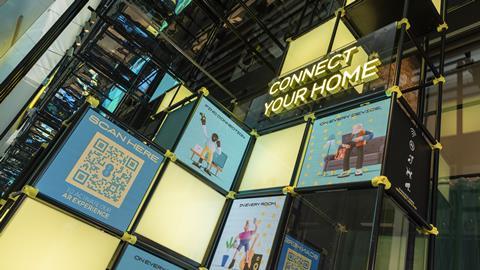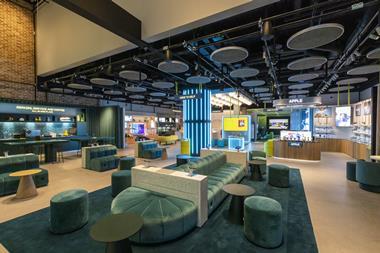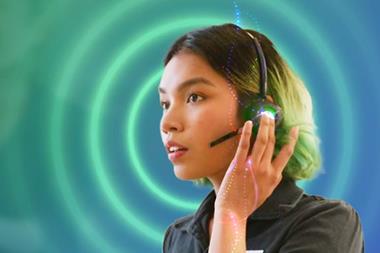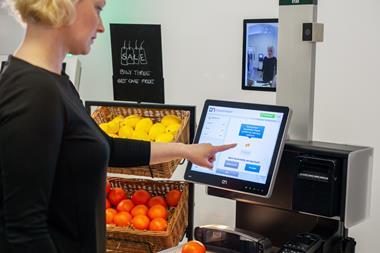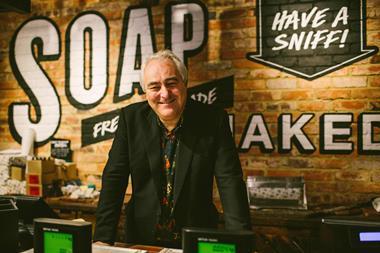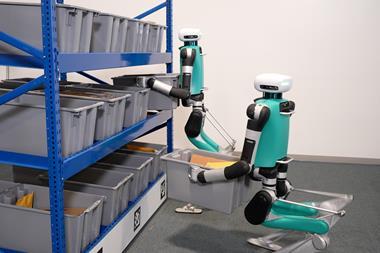PROMOTIONAL RESEARCH
If the past year is indicative of change to come, we’re balanced on the cusp of cutting-edge technologies becoming a must-have, rather than a nice-to-have, for retailers keen to remain ahead of the curve
Retail Week shares three trends making waves that will be explored at the Innovation Summit on November 8.
From virtual try-on tools and metaverse make-up labs to frictionless checkouts and driverless deliveries, it’s been impossible to miss the impact of tech-driven innovation over the past year.
Yet with retailers navigating balancing their bottom line, knowing where and what technologies to invest in to generate the greatest returns is a challenge.
Here are three areas that EE, Lush and Estée Lauder are prioritising to maintain growth in the short and long term.
Immersive in-store experiences
While ecommerce is synonymous with integrated tech experiences, bricks-and-mortar stores certainly aren’t being left behind when it comes to innovation.
From loyalty apps and tech-driven product personalisation to new recycling and repair hubs, retailers have been levelling up their in-store experiences in a bid to increase dwell time, boost basket size and promote brand loyalty.
Mobile phone retailer EE launched a new store format with its “future face of retail” flagship Studio store in Westfield London, White City, in June of this year.
While customers shopping for mobile phones typically only visit a store when they’re in need of an upgrade or something’s broken, the retailer’s new strategy aims to change that behaviour by putting innovation, personal experiences and communities front and centre.
The first of EE’s new stores features “experience zones” including a dedicated gaming area, where shoppers can play with the latest consoles, test out racing simulators and try virtual-reality headsets, a “taste of the future” smart home zone, and a “digital spa” – a tech-driven sensory space helping customers detox from their screens.
Following the launch, the retailer has opened three additional experience-focused stores in Cardiff, Kent and Manchester over July, August and September, with plans to roll out the “best aspects” of these stores across its wider store portfolio.
- Hear more about EE’s store strategy from Retail Director Asif Aziz at the Innovation Summit. Reserve your free place here
AI-driven accessibility
Ensuring both online and in-person experiences are accessible is an ongoing challenge that retailers must address, and AI is being leveraged to help brands make strides in reducing barriers to engaging with their products and services.
Beauty behemoth Estée Lauder Companies launched a “first-of-its-kind” app to the UK in January 2023 to support visually impaired users to more accurately, easily and confidently apply makeup.
The app features a Voice-enabled Makeup Assistant (VMA), built with smart mirror technology driven by augmented reality and artificial intelligence capabilities, which was developed using machine learning.
The VMA identifies makeup applied on a user’s face and assesses the uniformity and boundaries of coverage for lipstick, eyeshadow and foundation. The tool then audibly describes to the user any areas where more accurate makeup application or touch-ups are needed.
Future versions of the VMA and app will offer expanded services with the goal of providing new features, including looks to choose from and makeup education tools.
The brand’s overall ambition for the app is “to support the visually impaired community by further enabling self-expression and self-empowerment through their relationship with makeup”.
Explore Estée Lauder Companies’ AI strategy with Chris Aidan, the retailer’s Global Vice-president of Emerging Technology and Innovation, who is speaking at the Innovation Summit. Register for your free place here.
Sustainable supply chains
From product sourcing, development and manufacturing right through to consumers’ end use and disposal, technological innovations are helping retailers to drive sustainability across the full value chain.
British cosmetics retailer Lush is on a mission to “leave the world lusher than we found it”, emphasising its aspiration to create a circular business model that helps to regenerate ecosystems and communities.
Innovative products including shampoo bars, soaps and makeup products are specially formulated to allow them to be sold ‘naked’, without packaging, reducing unnecessary waste.
Where packaging is required, such as to preserve products during transportation, as much as possible is reused, recycled or recaptured at the end of its life. Lush’s Green Hub, a dedicated, tech-driven recycling centre, allows the retailer to take “full control” over what happens to its waste.
Lush completed its move to a larger recycling centre (its current Green Hub) in Hamworthy, Dorset, opening its doors to the public in May 2023. The £2.3m facility spans 40,000 sq ft, having relocated from its smaller Fleets Corner building, which had been operational since 2015.
In July 2023 Lush introduced Trash Dash, an online portal where customers can log litter-picks, aiming to reach the goal of cumulatively collecting 60 tonnes of rubbish, with the brand offering random acts of kindness to those getting involved.
The initiative launched alongside the brand’s collaboration with SpongeBob SquarePants. The collection was designed with the aim to “encourage shoppers to consider the sea and choose plastic-free”.
The collaboration formed part of Lush’s wider strategy to partner with other franchises and grow its reach while keeping its brand identity firmly intact. Over the past 12 months, it launched eight collaborations, including with Netflix show Stranger Things and movie tie-ups Barbie and The Super Mario Bros. Movie.


















